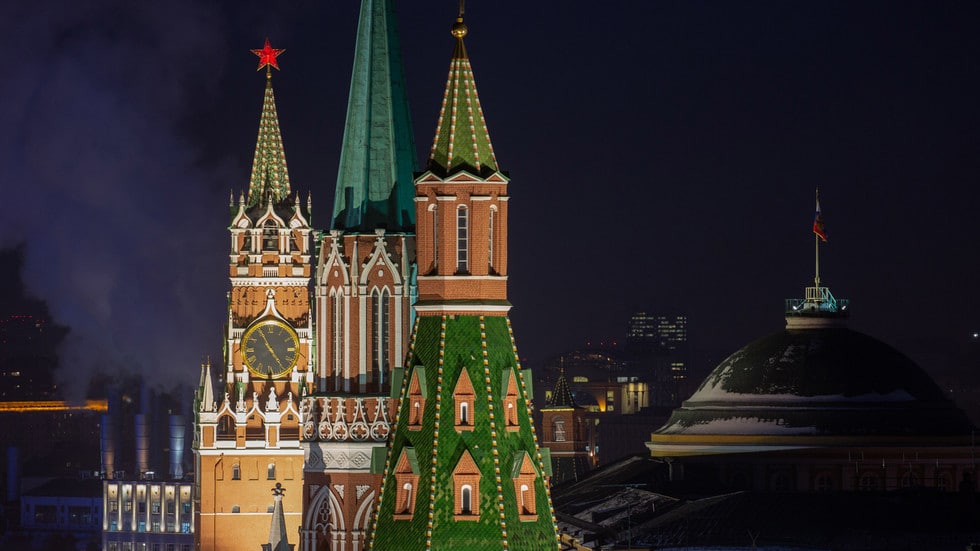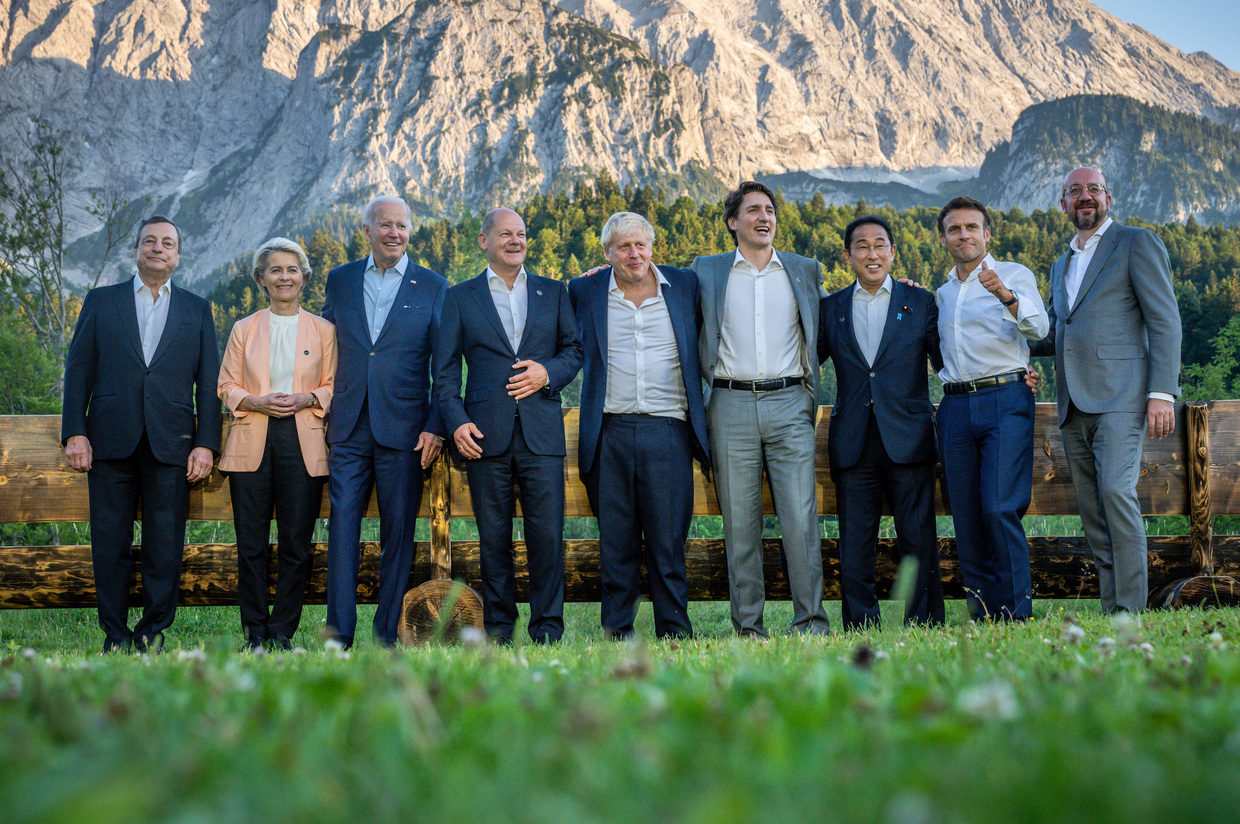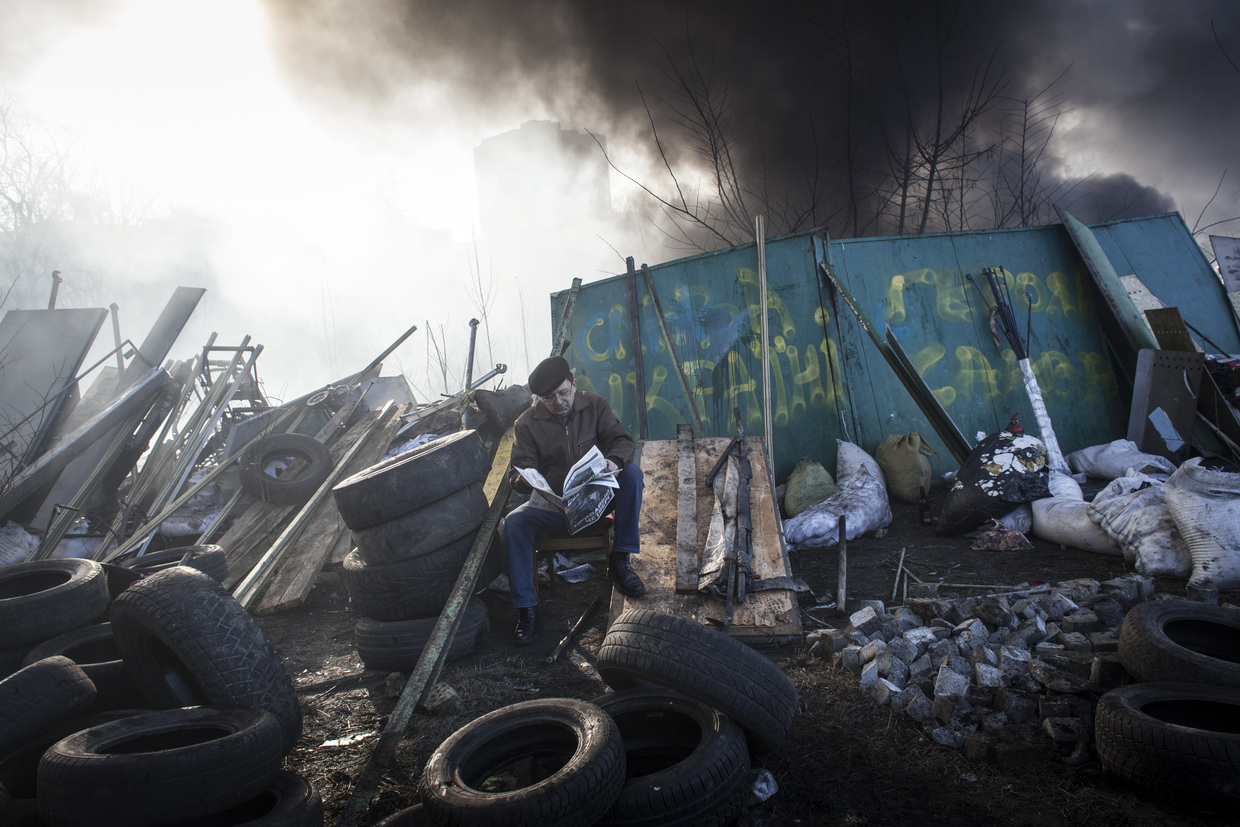
The Moscow Kremlin. Photo: Getty Images/Andrey Rudakov/Bloomberg.

Orinoco Tribune – News and opinion pieces about Venezuela and beyond
From Venezuela and made by Venezuelan Chavistas

The Moscow Kremlin. Photo: Getty Images/Andrey Rudakov/Bloomberg.
Forget the veteran warmonger, Britain’s Henry Jackson Society has come up with a far more elaborate scheme
On October 4, notorious US neoconservative John Bolton wrote a highly revealing op-ed for the military blog 19fortyfive.com. Its bold title concisely encapsulated the rabid warmonger’s message – Putin Must Go: Now Is the Time For Regime Change in Russia.
Bolton outlined just what Washington’s response to the Ukraine conflict – and, indeed, its policies towards Russia since the Cold War’s ended – has always been about. Namely, the US Empire ensuring a pliable, servile leader – who doesn’t stand in its way – is safely installed in the Kremlin, and that Europe, as a whole, remains subjugated to its economic, political, and military will.
That this state of affairs has been a top Anglo-American objective for some time is very clear. While Bolton’s comments elicited enormous amounts of mainstream attention, a report published in June this year, which spelled out in even greater detail how the conflict could facilitate fulfilment of that long-standing goal, passed by unacknowledged.
British shenanigans
Produced by the Henry Jackson Society (HJS), a hardline pressure group with very close ties to the government and the ruling Conservative party, the report asked: Opposition in Russia to the Invasion of Ukraine: How Much of a Threat is it to Putin’s Regime?
Neither the titular question nor the subject of opposition elements was approached from a purely academic perspective. In fact, the document gives every appearance of providing a prospective blueprint for the Russian government’s overthrow, via covert sponsorship of anti-government activists throughout the country. Of particular note is a set of seven “policy recommendations” which close it out.
It demands that the G7 group of countries “declare as its goal Ukraine’s military defeat of Russia and the return of occupied territories and provide extensive military equipment and training until this goal is achieved.” The bloc is also urged to “publicly announce that it seeks to remove Putin from power,” while “spreading intelligence of the threat of a coup against the Kremlin leadership, though without endangering any such coup plotters.”

FILE PHOTO: The leaders lined up for an informal group photo at the ‘Merkel – Obama’ bench after dinner at the G7 meeting at Schloss Elmau. © Michael Kappeler / picture alliance via Getty Images
Meanwhile, Washington is urged to “declare Russia…a state sponsor of terrorism and publicly declare Putin to be a war criminal who constitutes a serious threat to European and global security and to the restoration of democracy in Russia,” with “foundations promoting Western democracy” – no doubt a reference to CIA fronts such as the National Endowment for Democracy and USAID – directed to “significantly increase their support of the different components of Russia’s opposition.”
Those same outfits, HJS suggested, “should also increase their support of Russian independent media outlets,” at home and in Ukraine, the Baltics and Poland. Western governments were, moreover, invited to “encourage the defection of Russian state officials” and military officers, “who would be provided with asylum in the country of their choice in exchange for insider information” that could be used in future international criminal prosecutions of Putin and of other ministers.
“A campaign must be established to increase [the] information being shared with the Russian public through Russian independent media outlets, through Western radio stations, and through operations conducted by Anonymous on the impact of Western sanctions on the Russian economy and finances and the high number of casualties of Russian soldiers,” the report ominously concludes.
She comes in colors everywhere
If those proposals sound familiar, it’s because they have all been implemented – or at least sounded out – by all G7 governments, whether individually or collectively, in the months since the HJS report was released.
This may explain why the publication received no Western news attention, unlike most other anti-Kremlin think-tank declarations issued this year. After all, why would G7 governments –or the media apparatuses they control or influence – draw attention to policies or public pronouncements in advance of their issuance, or openly advertise, before battle, detailed plans for effective war.
That the HJS’s research was primarily concerned with exploring means of regime change is amply underlined by numerous sections referencing Ukraine’s “Orange Revolution,” and the 2014 Euromaidan coup.

FILE PHOTO: An anti-government protester on the watch at the barricade on Instituska Street near Maidan Square on February 21, 2014 in Kiev, Ukraine. © Etienne De Malglaive / Getty Images
The experience of these ousters led the pressure group to consider it of utmost importance to build infrastructure on the ground in Russia – “it was precisely such broad coalitions that were successful in opposing the authorities” and in overthrowing troublesome governments in Kiev in 2004 and 2014, it approvingly notes.
However, the HJS forecast that constructing such a “coalition” in Russia would be more difficult than in Ukraine, due to significant approval of the Kremlin’s actions among the general population. As such, the organization proposed weaponizing “disgruntled state officials; public disquiet at the invasion…and military casualties; the impact of Western sanctions on the Russian people [and] divisions within Russia’s siloviki (security forces)” for the purpose.
In other words, the lobbyists are advocating for a ‘color revolution’ in Moscow, in the vein of Ukraine’s, but also those of Georgia, Kyrgyzstan and other parts of the former Soviet sphere during the 2000s. While the tactics employed in each country varied slightly, the endgame was the same in each case: replacing non-aligned governments with autocratic, unpopular regimes concerned with furthering Western interests and mortgaging national sovereignty to those same actors.
In Ukraine in 2004, National Endowment for Democracy’s programs radicalized local youth and funded protest movements, bussed paid demonstrators into Kiev, created opposition media outlets to agitate for upheaval, provided offshore training to activists, and paid local pollsters to publish surveys indicating significant anti-government sentiment.
This effort wasn’t entirely successful in eradicating pro-Russian feeling from the country, hence the need for the US to covertly and overtly sponsor violent nationalist elements in Kiev in the months and years preceding Euromaidan. Ukrainians, and the rest of the world, live with the legacy of that dangerous meddling today. The fallout of a similar effort in Russia would be likely even more disastrous, with even more catastrophic global implications assured.
(RT) by Felix Livshitz